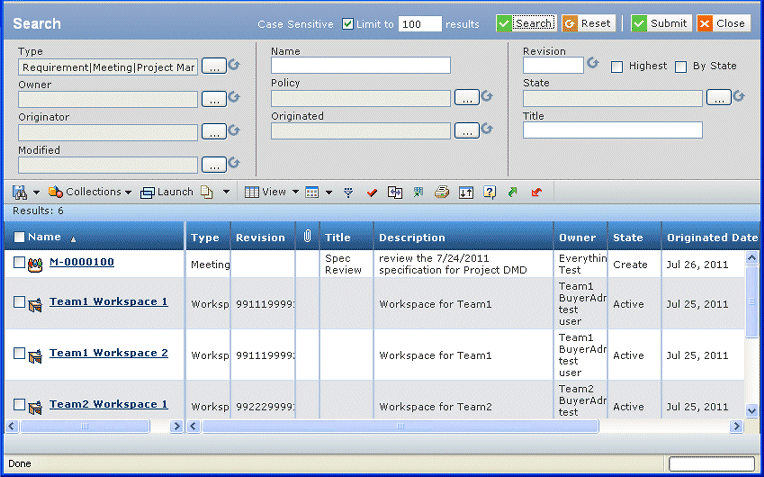Click  next to the item you are searching for.
next to the item you are searching for.
Or
Click an Add command (such as Add Existing or Add Person) from the page Actions menu
or toolbar.

Enter search criteria. By default, all fields are case-sensitive, unless
your company uses an Oracle database that has been configured for case
insensitivity. The ENOVIA Live Collaboration/DB2 environments are always
case-sensitive. See Advanced Search Consolidated Page for descriptions of the search criteria fields.
Note:
Depending on the type being searched for, you may see additional, fewer, or different fields.
Use the Limit to text box to specify how many
items should be shown in the search results. For example, if you limit
the results to 50, the system will get only the first 50 items from the
database that match your criteria. The maximum is by default 1000, but
may vary depending on your installation setup.
Click Search. The results show at the bottom
of the page. The columns that show, in addition to the object name, depend
on the type of object you searched for.
Select the needed objects. Depending on the page where you initiated
the search, you may be able to choose 1 or many objects. See Advanced Search Consolidated Page for descriptions of the columns.
Click Submit.
If you do not want to complete the action (adding an object to a page
or dialog box), you can close the Search page.